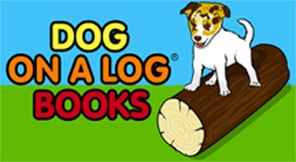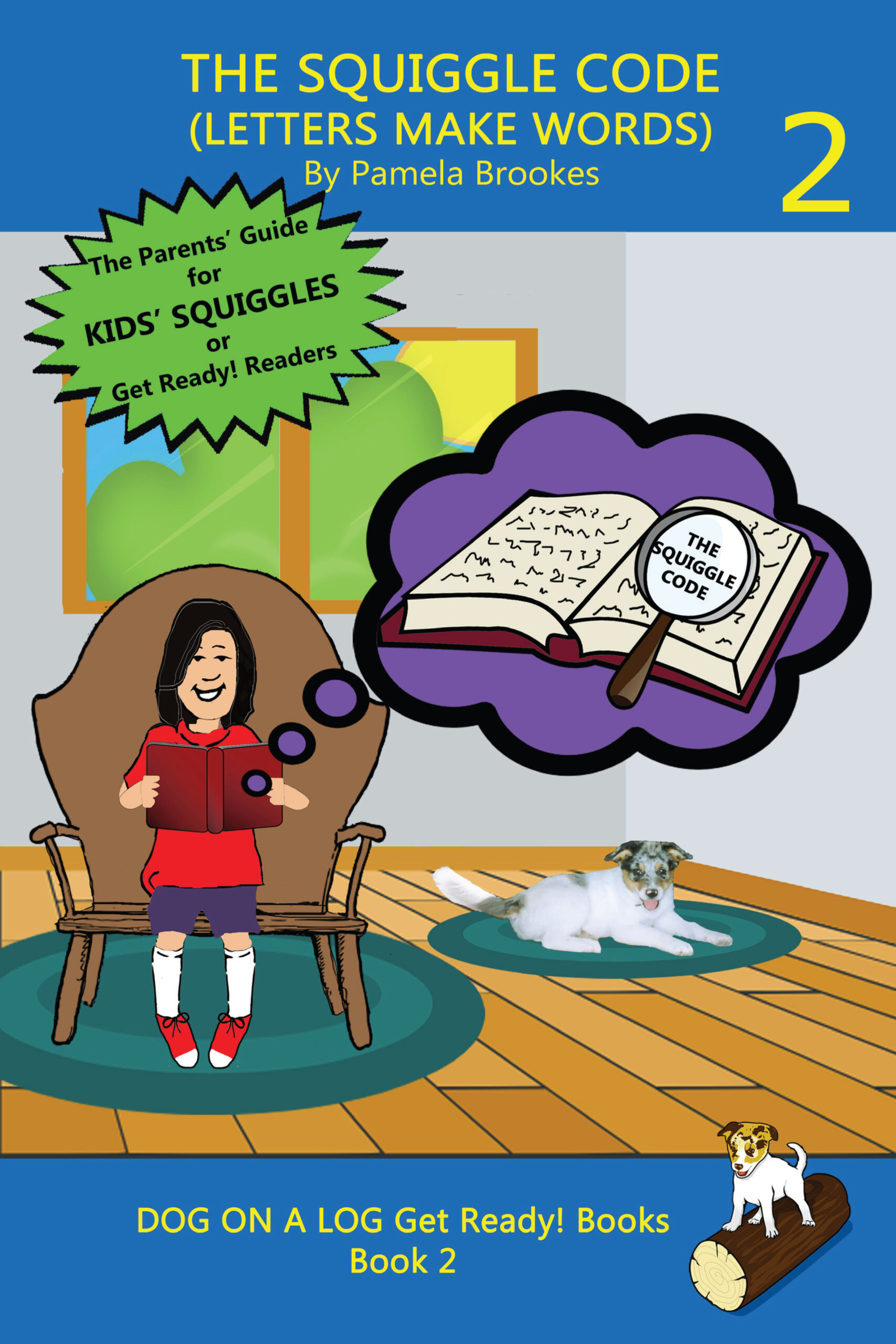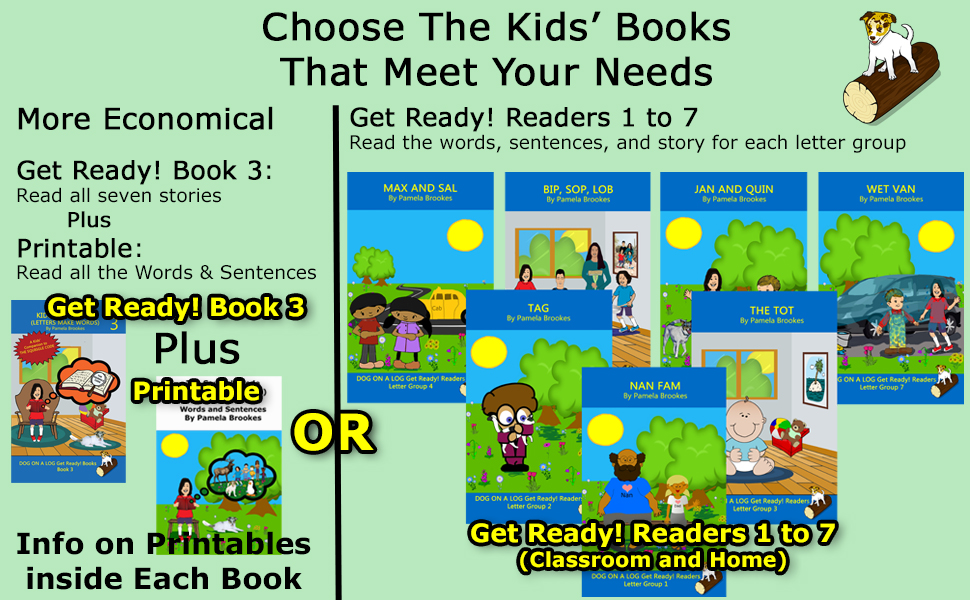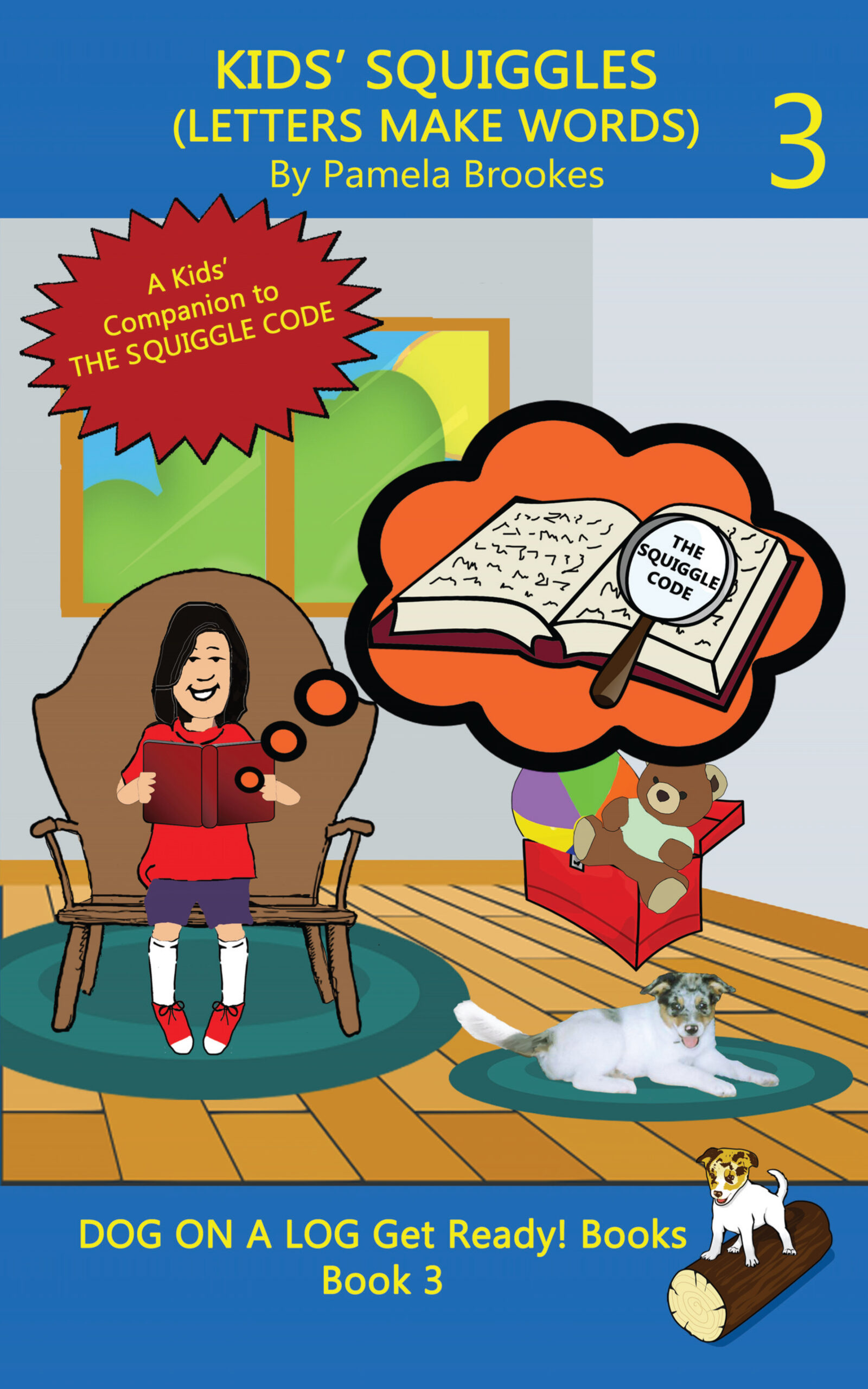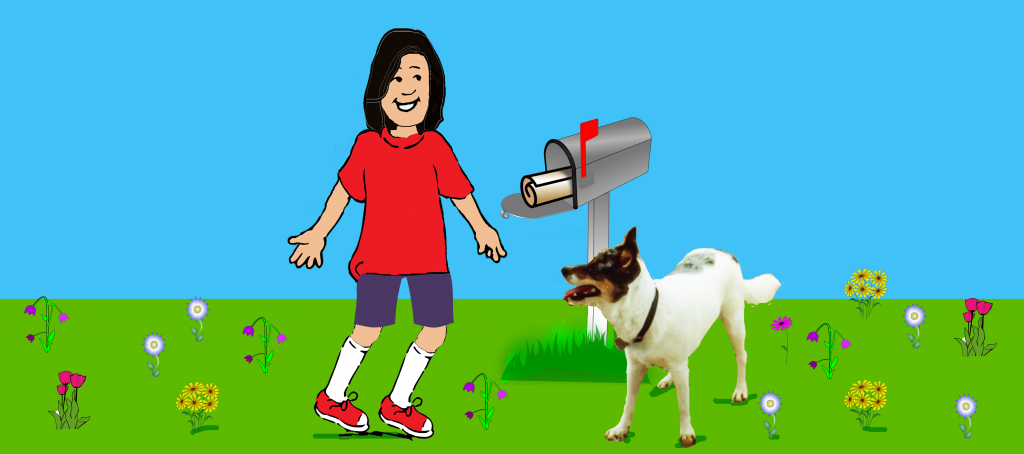Pre-Reader Books for New Readers and Students with Dyslexia
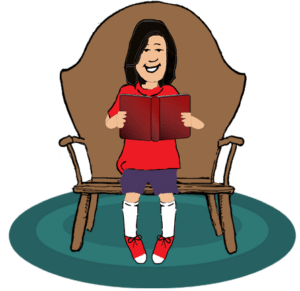
pre-reading skills Dyslexia
Scroll down to see YouTube Video, Reviews, Books, and Excerpt
DOG ON A LOG Get Ready! Books: A Parent-Friendly Roadmap for teaching kids to read using phonics.
DOG ON A LOG (Blue) Get Ready! Readers: Kids’ Books for Classroom and Home
Edited by Nancy Mather Ph.D.
Get Ready! Book 1
Before The Squiggle Code (A Roadmap to Reading)
Phonological/Phonemic Awareness:
- Words
- Rhyming
- Syllables: identification, blending, segmenting
- Identifying individual letter sounds
pre-reading skills
Get Ready! Books 2 and 3
The Squiggle Code (Letters Make Words)
Kids’ Squiggles (Letters Make Words)
and
(Blue) Get Ready! Readers 1 to 7
Phonemic Awareness/Phonics
- Consonants: primary sounds
- Short vowels
- Blending
- Introduction to sight words
- The letters are introduced in the following groups:
- (a, s, m, f, t, n)
- (r, d, c, g)
- (o)
- (b, h, l, x)
- (i, p, k, j)
- (u, y, z, qu)
- (e, v, w)
Review: 5 and 8-year-old girls’ mom
Review: Professor of Reading/Dyslexia
Review: Speech-Language Pathologist
pre-reading skills parent-friendly roadmap for teaching kids to read using phonics.
Trying to find a way to teach your child to read, whether you are supplementing what your child is being taught in school or as a homeschooling family, can feel overwhelming. DOG ON A LOG Get Ready! Books are written by a mom who wants to try and eliminate some of those feelings for other parents. These parent-friendly books will guide you along the path of teaching reading.
DOG ON A LOG Get Ready! Books give simple activities you can do with your child. Once you understand the skills that your child needs to learn, you may wish to add additional activities. Resources are suggested that will help you find additional free or low-cost activities you can personalize to your child. Extra printable activities are available from our printables page. (Link at the bottom of this page.)
DOG ON A LOG (Blue) Get Ready! Readers 1 to 7 Each of these seven readers includes just one story from “Kids’ Squiggles” along with traceable letters and sound-out content from “The Squiggle Code.”
Pre-Reader Books for New Readers and Students with Dyslexia
This Author Chats video by Teach My Kid to Read explains how to use the FREE printable Pre-Reader games and activities to teach the essential, foundational skills of Phonological Awareness. You can also download the PDF of the PowerPoint used in the video.
Download the PDF of the Author Chats PowerPoint
Pre-Reader Books for New Readers and Students with Dyslexia
Please note: This website contains affiliate links. If I’m an affiliate, it’s because I believe in a product.
As an Amazon Associate I earn from qualifying purchases.
Pre-Reader Books for New Readers and Students with Dyslexia
Pre-Reader Books for New Readers and Students with Dyslexia
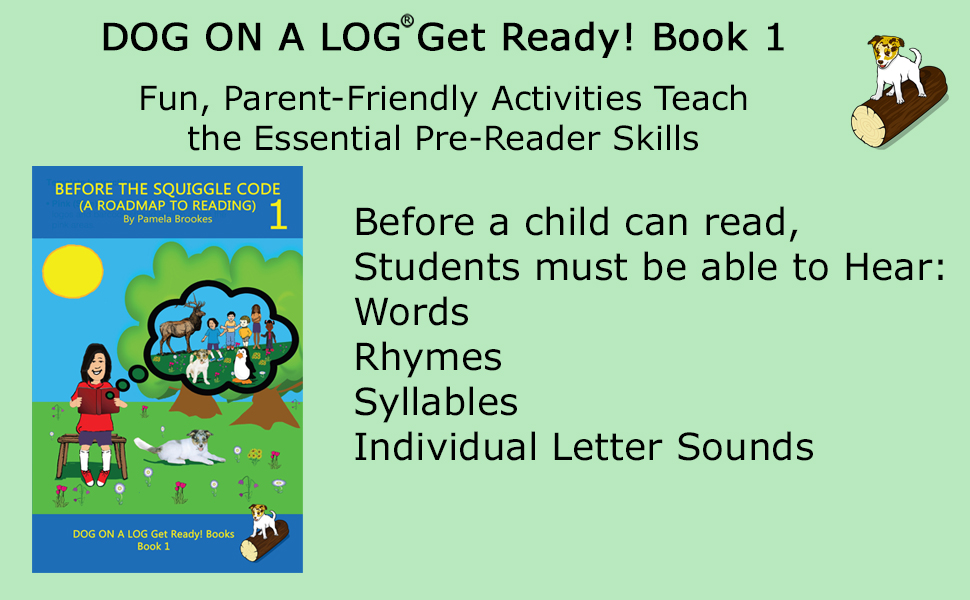
The Squiggle Code (A Roadmap to Reading)
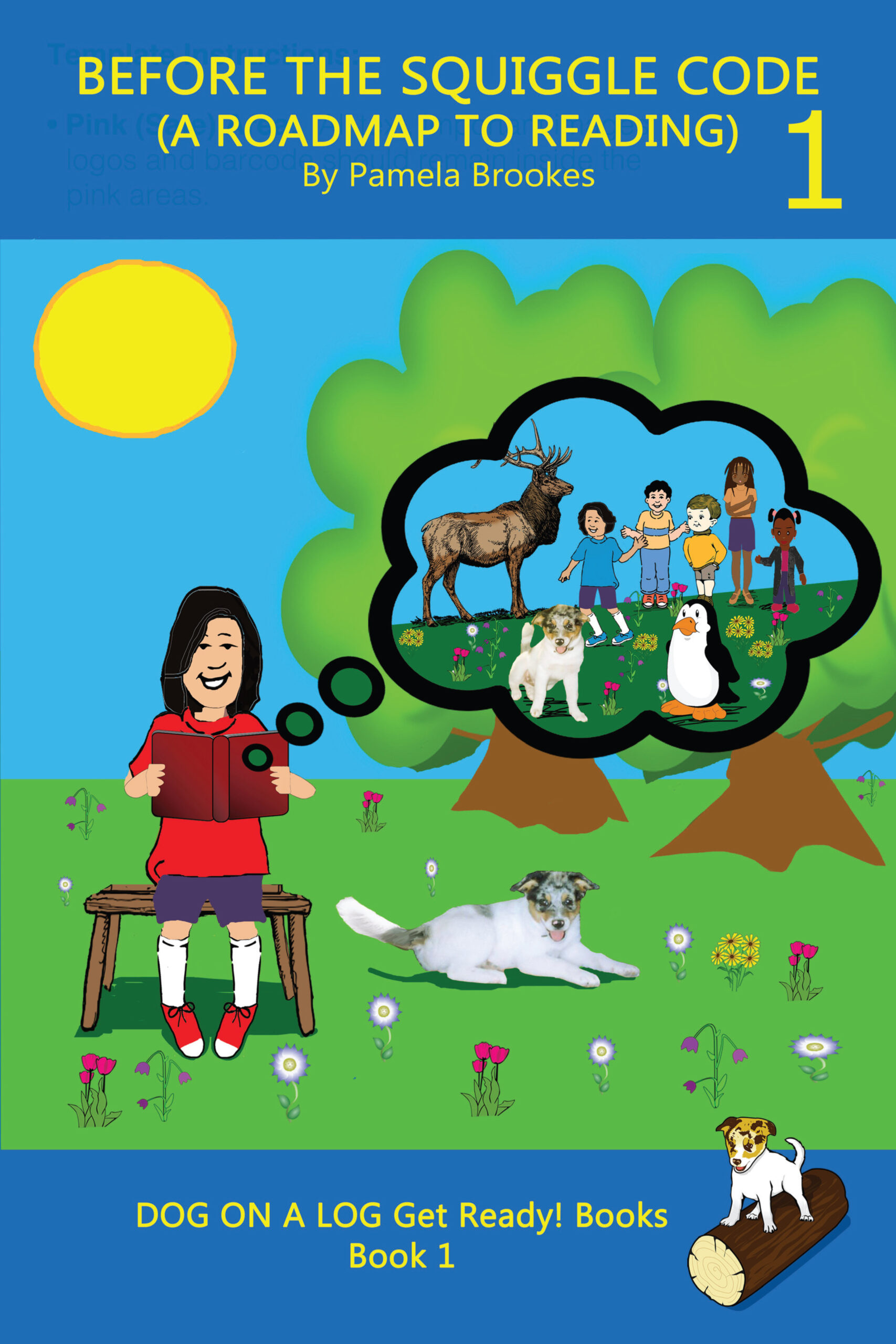
Book 1: “Before The Squiggle Code (A Roadmap to Reading)” Starts at the very beginning of the learning to read process: it helps the learner hear the smallest sounds in words. Relevant excerpts from “Teaching a Struggling Reader: One Mom’s Experience with Dyslexia” are also included to help parents with children who are struggling to read.
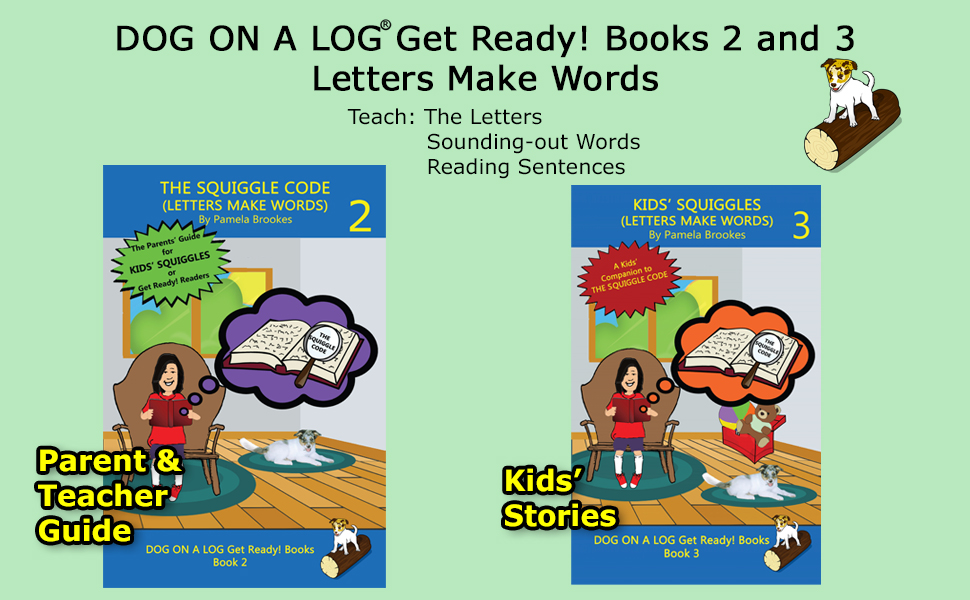
Get Ready! Readers 1 to 7 (Can be used instead of “Kids’ Squiggles”) Each of these seven readers includes just one story from “Kids’ Squiggles” along with traceable letters and sound-out content from “The Squiggle Code.”
Nan Fam (Classroom and Home)
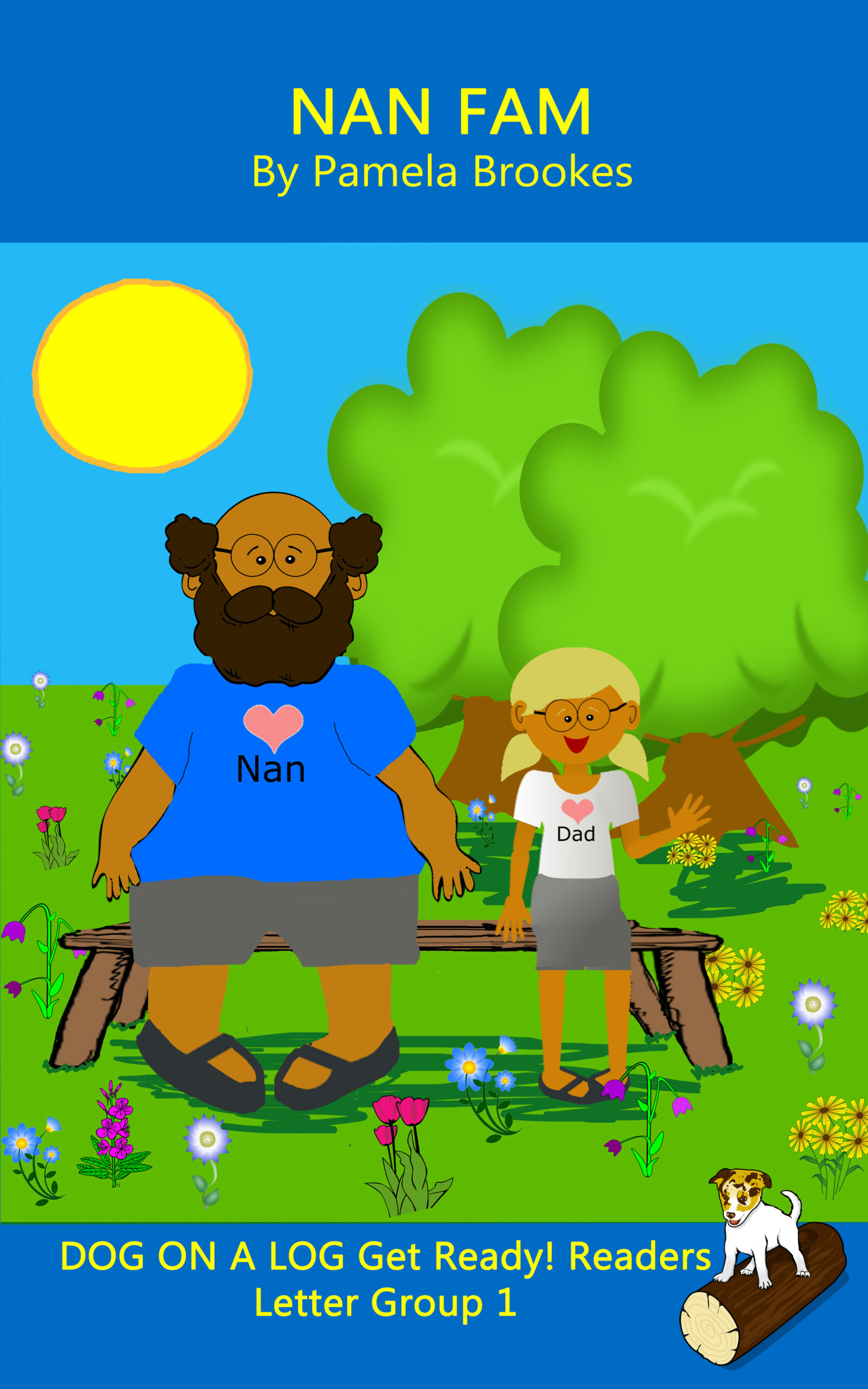
Letter Group 1:
- (a, s, m, f, t, n)
Sound-Out Words
2 Sight Words
1 Short Story
Traceable Block Letters
Traceable D’Nealian Letters
Keyword Tables
Tag (Classroom and Home)
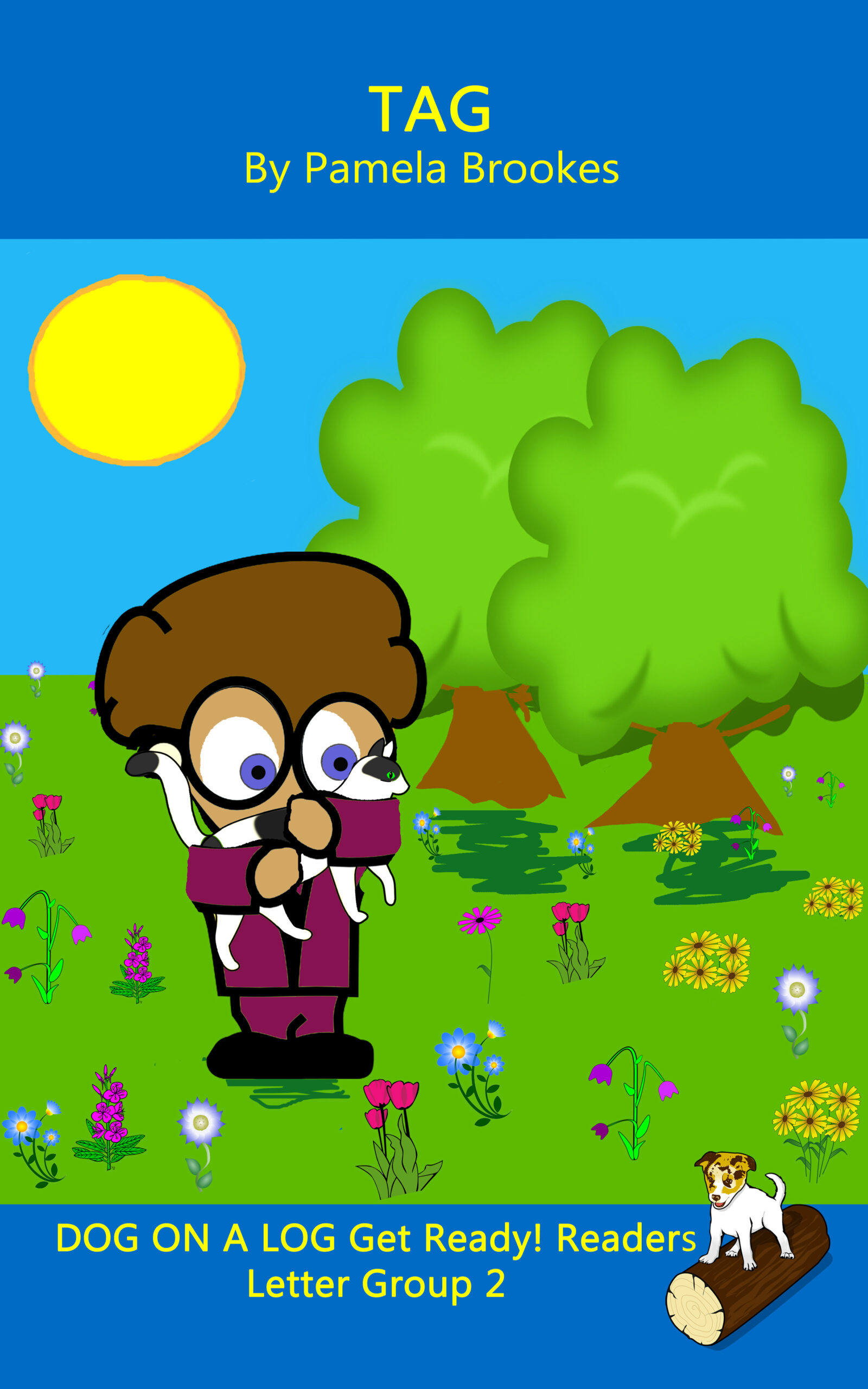
Letter Group 2:
- Letters and Sight Words from Book 1
- (r, d, c, g)
Sound-Out Words
4 New Sight Words
8 Sentences
1 Short Story
Traceable Block Letters
Traceable D’Nealian Letters
Keyword Tables
The Tot (Classroom and Home)
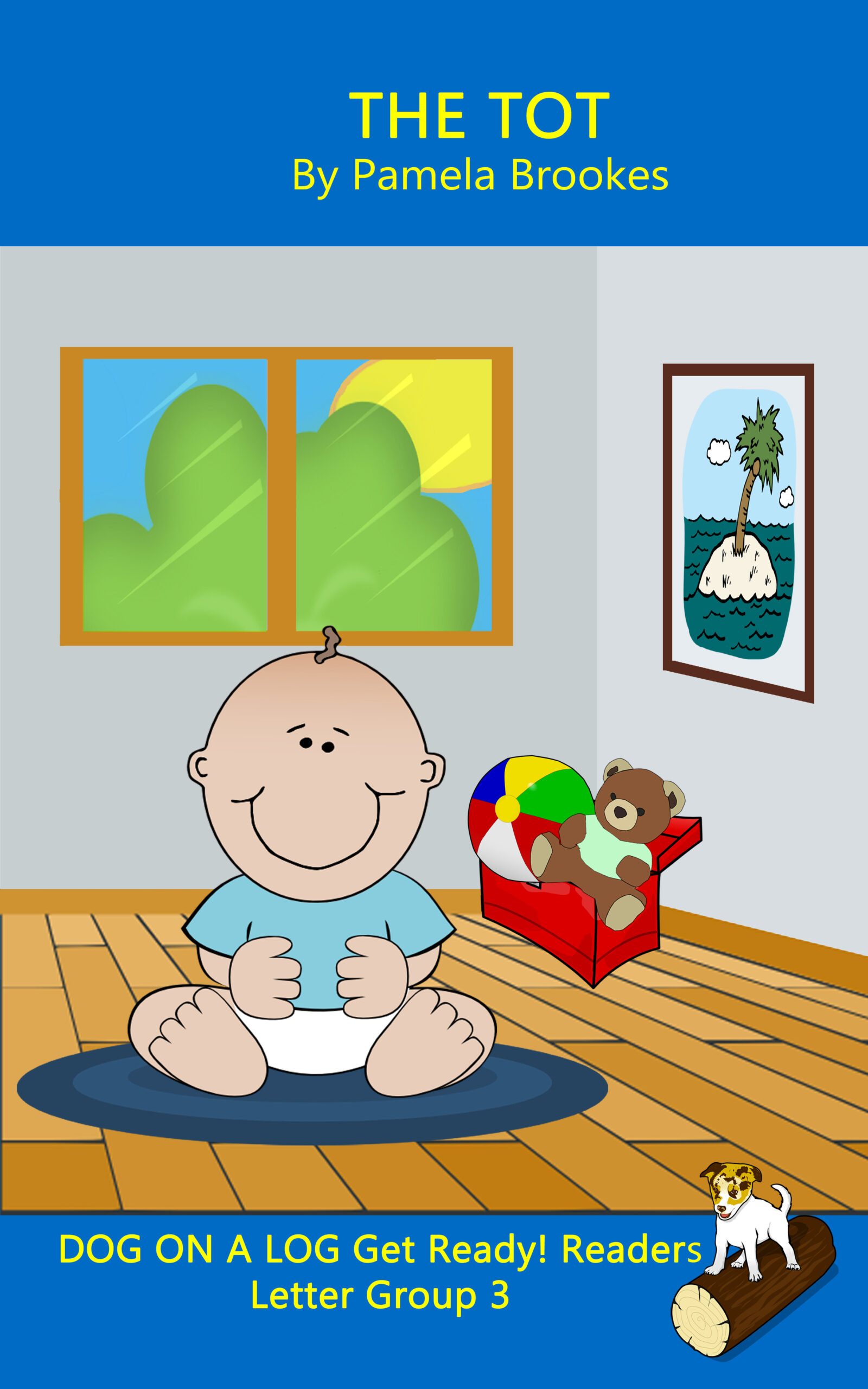
Letter Group 3:
- Letters and Sight Words from Books 1 & 2
- (o)
Sound-Out Words
8 Sentences
1 Short Story
Traceable Block Letters
Traceable D’Nealian Letters
Keyword Tables
Max and Sal (Classroom and Home)
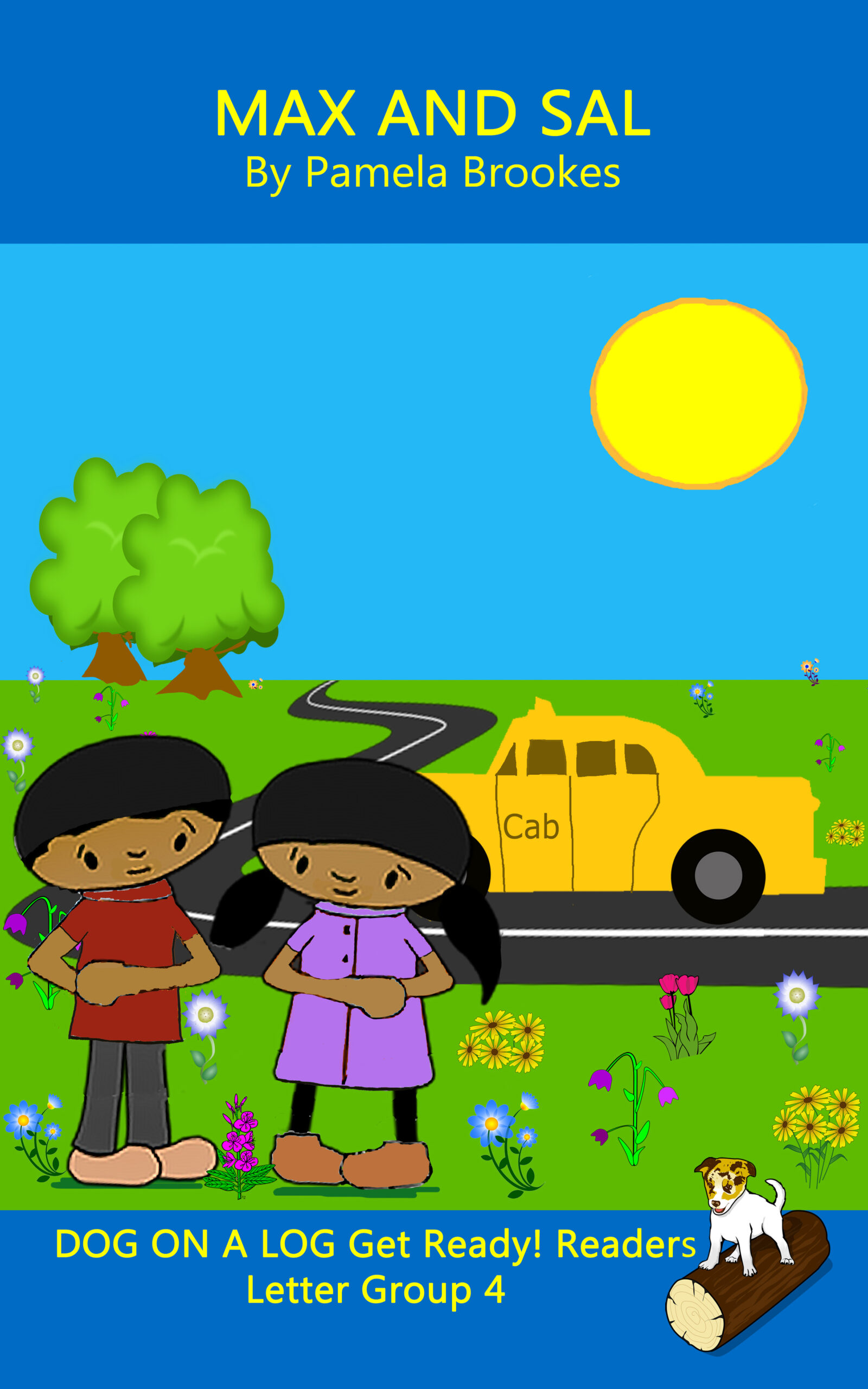
Letter Group 4:
- Letters and Sight Words from Books 1 to 3
- (b, h, l, x)
Sound-Out Words
3 New Sight Words
8 Sentences
1 Short Story
Traceable Block Letters
Traceable D’Nealian Letters
Keyword Tables
Bip, Sop, Lob (Classroom and Home)
Pre-Reader Books for New Readers and Students with Dyslexia
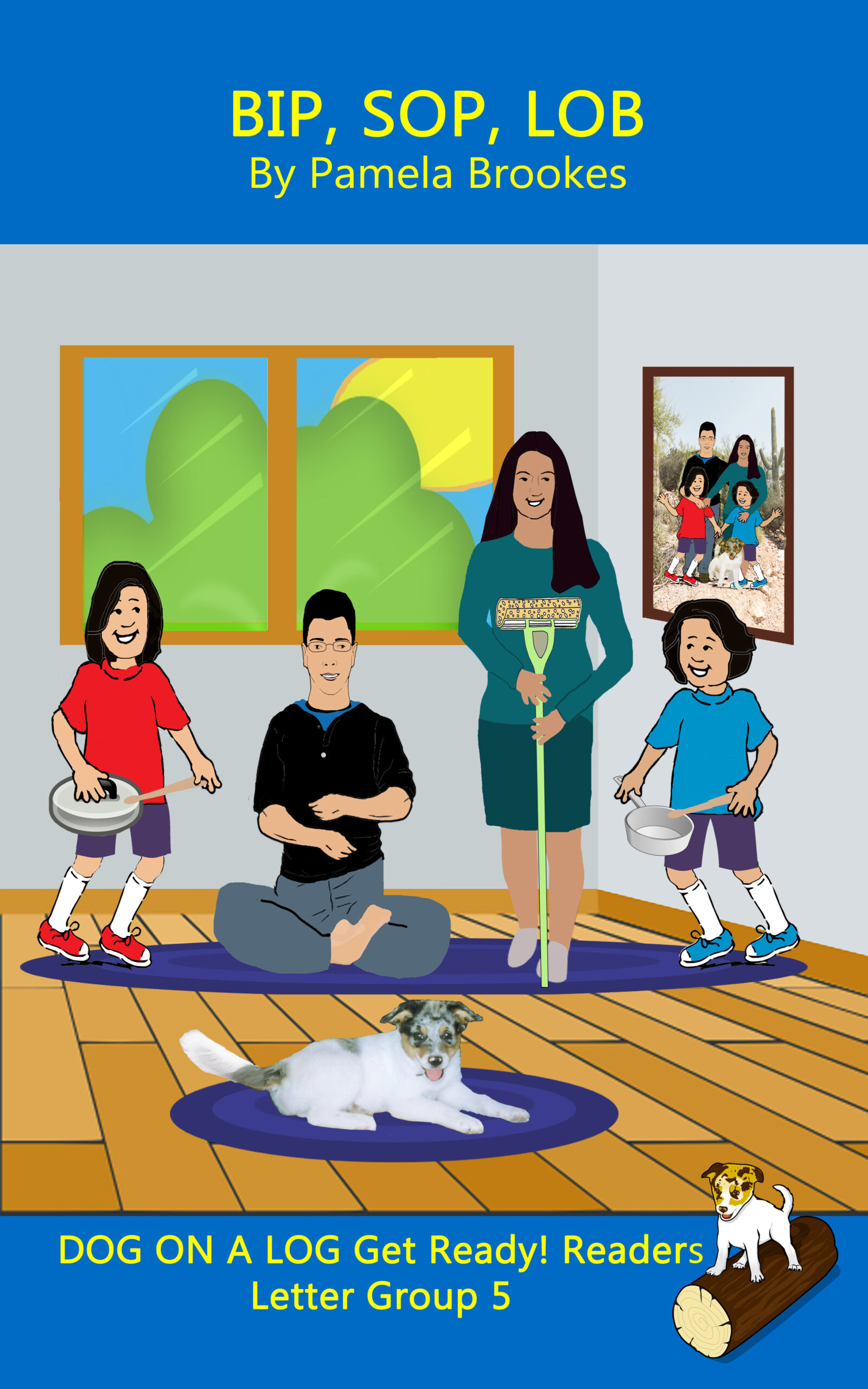
Letter Group 5:
- Letters and Sight Words from Books 1 to 4
- (i, p, k, j)
Sound-Out Words
2 New Sight Words
8 Sentences
1 Short Story
Traceable Block Letters
Traceable D’Nealian Letters
Keyword Tables
Jan and Quin (Classroom and Home)
Pre-Reader Books for New Readers and Students with Dyslexia
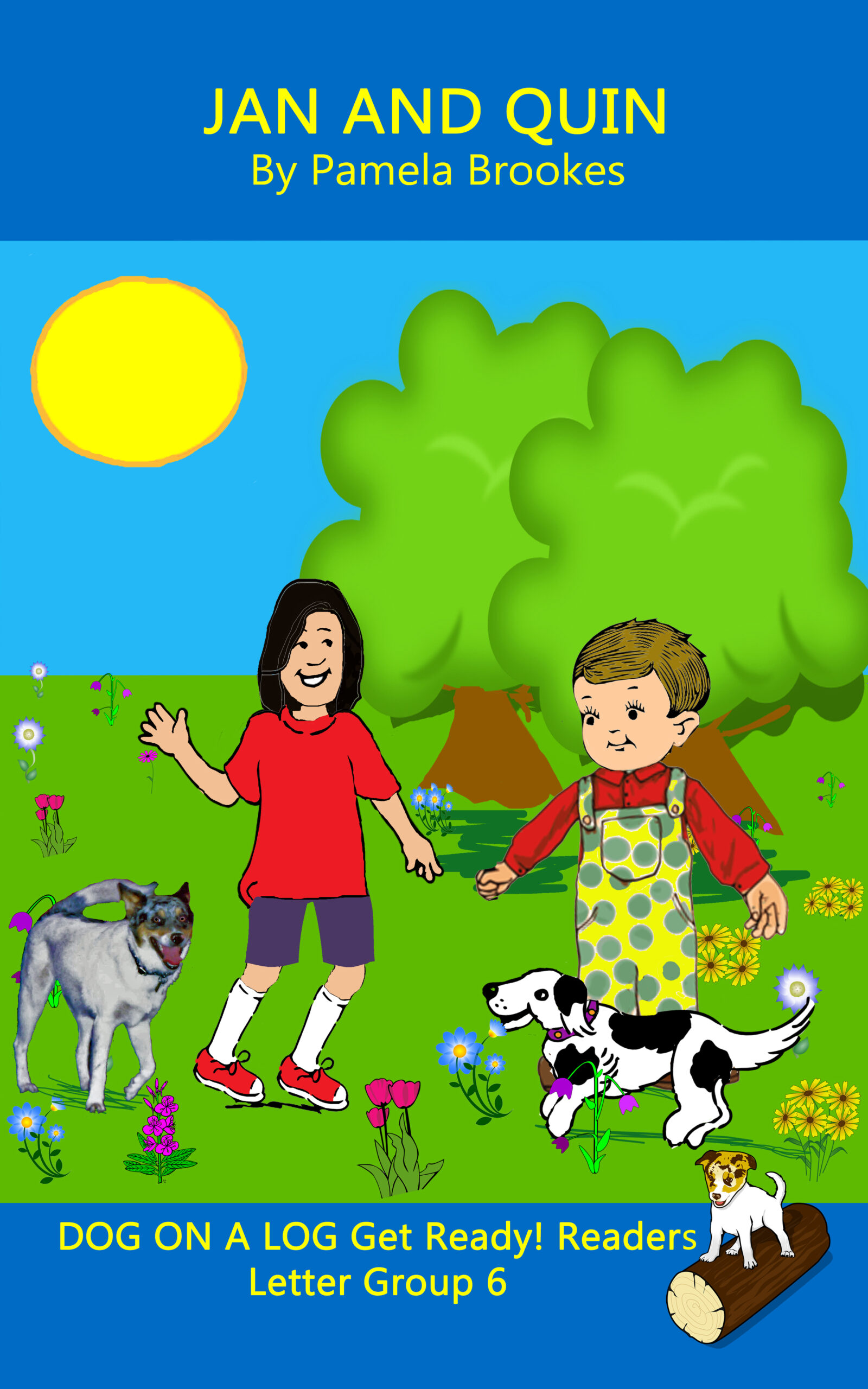
Letter Group 6:
- Letters and Sight Words from Books 1 to 5
- (u, y, z, qu)
Sound-Out Words
8 Sentences
1 Short Story
Traceable Block Letters
Traceable D’Nealian Letters
Keyword Tables
Wet Van (Classroom and Home)
Pre-Reader Books for New Readers and Students with Dyslexia
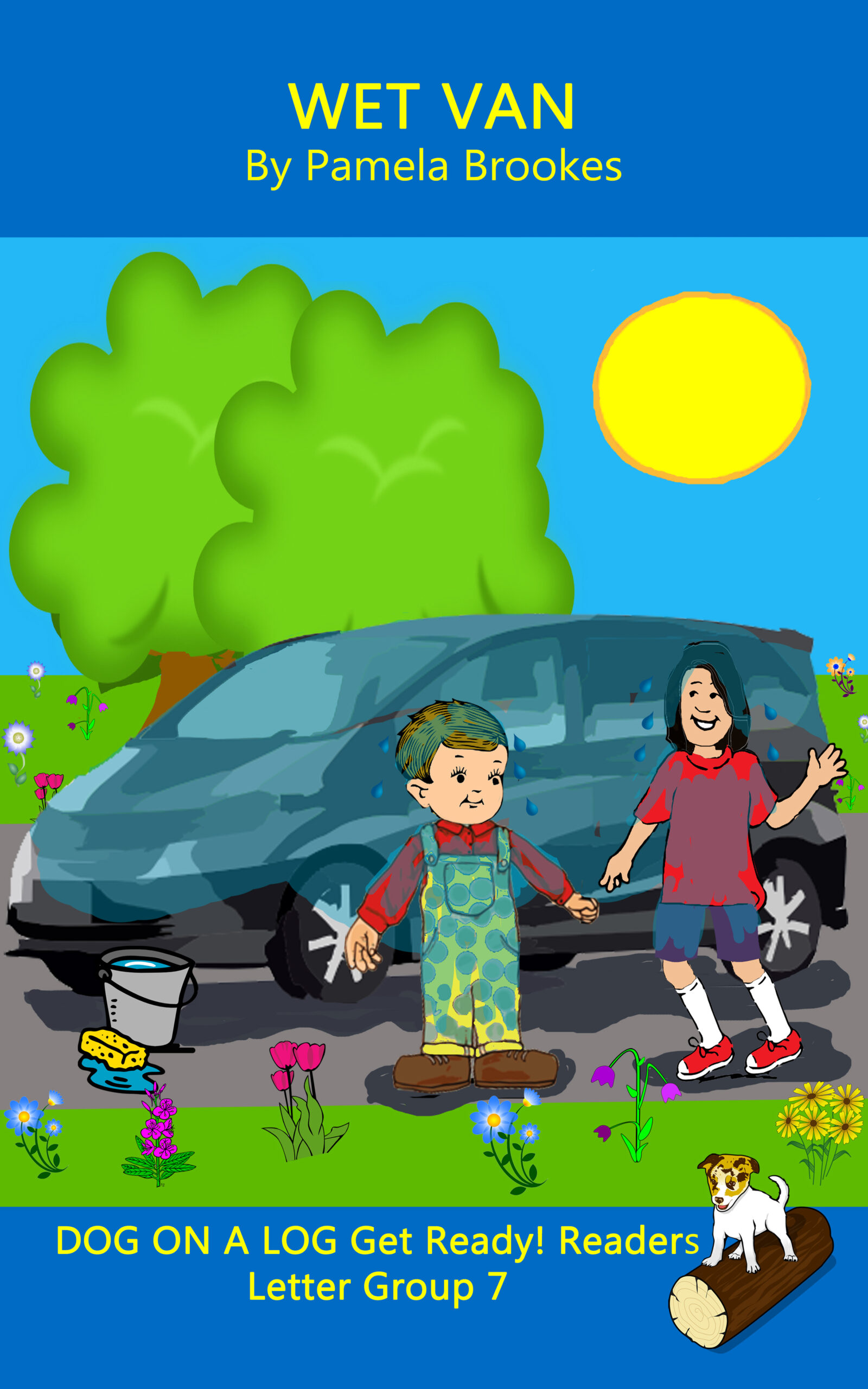
Letter Group 7:
- Letters and Sight Words from Books 1 to 6
- (e, v, w)
Sound-Out Words
8 Sentences
1 Short Story
Traceable Block Letters
Traceable D’Nealian Letters
Keyword Tables
Dog On A LOG Phonics and Dyslexia Books for Kids
Get Ready! Book Series
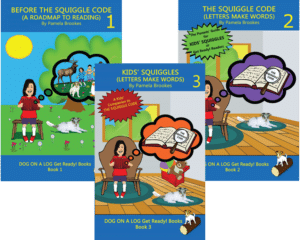
Book 1: Before the Squiggle Code
Book 2: The Squiggle Code
Book 3: Kids’ Squiggles
Dog On A LOG Phonics and Dyslexia Books for Kids
(Blue) Get Ready! Readers Series (Classroom and Home)
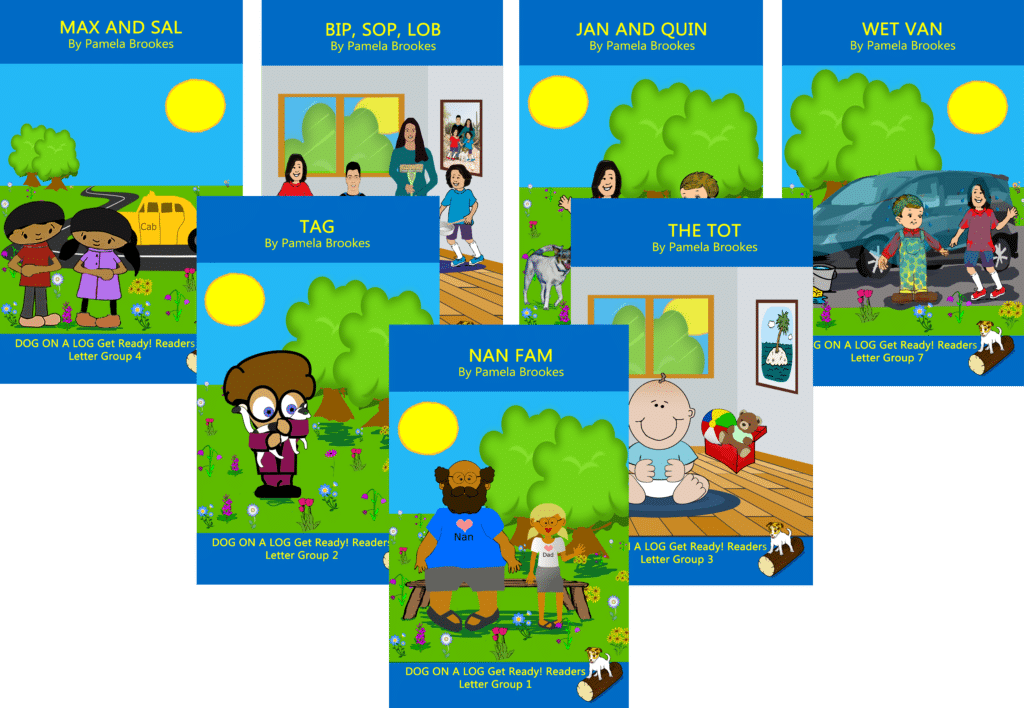
Book 1: Nan Fam
Book 2: Tag
Book 3: The Tot
Book 4: Max and Sal
Book 5: Bip, Sop, Lob
Book 6: Jan and Quin
Book 7: Wet Van
Sound-Out Decodable Books for Learning to Read
Sound-Out Decodable Books for Learning to to Read
Sound-Out Decodable Books for Learning to to Read
From
Before the Squiggle Code
pre-reading skills
Spoken language is a code. The code starts with random sounds that we group together into words. Then we put several words together to make sentences. By talking and by listening to each other’s words and sentences, we share ideas with other human beings.
Reading and writing are another type of code for sharing ideas. This code involves squiggles. We happen to call those squiggles letters.
We put squiggles on a piece of paper and tell a child, “Tell me what this says.”
Yet those squiggles are silent. They do not make any noise. Surely children must think we are crazy that we can get sounds out of squiggles.
Children trust us so they try to make that madness happen. If they are lucky, they have patient adults that show them how the squiggles make sounds and that groups of squiggles combine to make words.
Part of the best way to help someone learn to read is to make sure they can hear the smallest sounds in words which are called phonemes. And before we can teach them the small sounds, we must make sure they can hear the big sounds.
So, the beginning of learning to read is making sure the student can hear words. That may seem silly since most people learn to talk when they are just babies. Yet if they haven’t thought about what a word is, how can we expect them to turn squiggles into words?
This book will help your child, or even an adult learner, learn to hear each word in a sentence. Once they can do that, they must learn to hear syllables in each word. (Identifying syllables will also be an important skill when they are trying to read. Once they are taught the six types of syllables, it will make reading and writing a lot easier.) After they can identify the syllables in a word, it will be time to hear the individual sounds, the phonemes, in a word.
And then we tell them that each sound has a squiggle. If they put those squiggles together, they will make words. And if they can look at the squiggles someone has placed on a piece of paper or on a computer screen and they can make all those squiggles make a sound, they will have broken the squiggle code. That is when reading begins.
phonics and dyslexia books for kids pre-reading skills
Copyright ©2019 By Pamela Brookes
All Rights Reserved.
For information, contact the publisher at
read@dogonalogbooks.com
All DOG ON A LOG Books follow an Orton-Gillingham/systematic phonics-based sequence.
